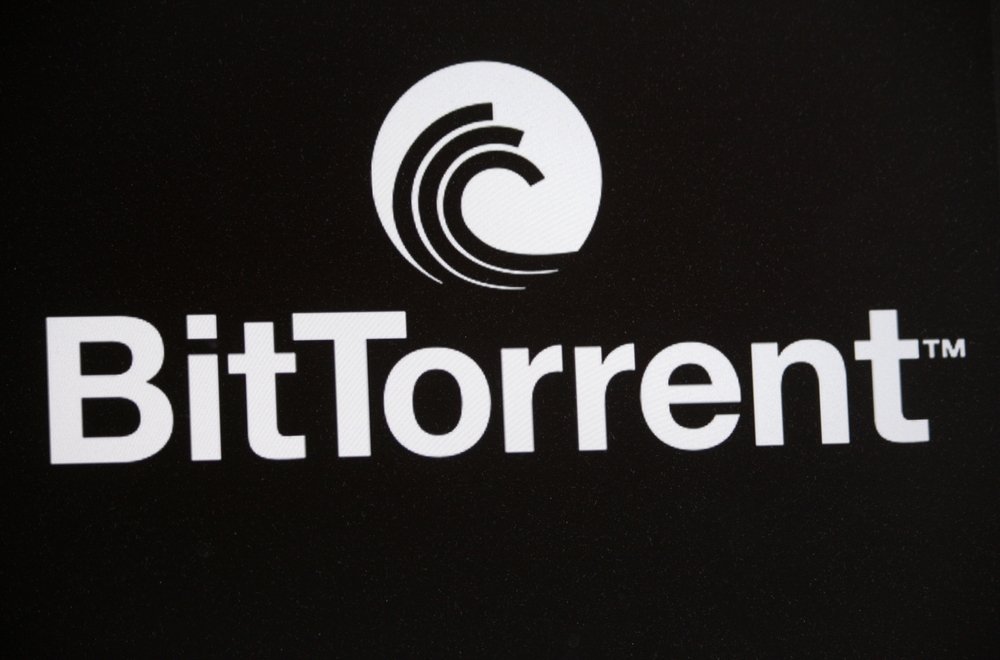
BitTorrent token has probably been the biggest talk of the blockchain town for the year of 2019. Ever since Justin Sun, the creator of TRON, purchased the company behind BitTorrent file-sharing protocol for $140 million back in 2018, it was clear to everyone that the project is heading towards a crypto-enhanced future. This future seems to be closer than ever as Sun recently launched the TRON-based BitTorrent token that will supposedly become the backbone of how you share files on the internet via the BitTorrent protocol.
We decided to look into the entire thing through a lense slightly more critical than the one used by the average internet hype beast/influencer and determine how much substance there actually is behind BitTorrent token.
What you'll learn 👉
About BitTorrent And Torrenting
BitTorrent is a popular communication protocol for decentralized peer-to-peer file sharing (P2P) invented in 2001 and currently owned by BitTorrent Inc., a San Francisco-based IT company. This company puts out some impressive claims on their About page, claiming their “BitTorrent” and “μTorrent” clients move “as much as 40% of the world’s Internet traffic on a daily basis” through the BitTorrent protocol.
While this number sounds just a tad bit outlandish, BitTorrent is in fact very popular, as it regularly clocks at least 100 million active users per month. Which is why TRON’s recent claim that BitTorrent/μTorrent ecosystem represents the world’s biggest decentralized application is likely correct.
Is TRX a good investment? Take a look at what future holds for TRX.
The crux of this protocol is the torrenting service it provides. This service allows for peer-to-peer file sharing of files where users can connect to other users via the internet and download files from each other, instead of relying on a single source of data like a website. A torrent file is like an index, containing information about the file (not the file itself) and addresses of worldwide computers which have the file on their hard-drives.
This torrent file can be opened via clients like BitTorrent or μTorrent, clients that will connect to a network of computers that have the entire file or just a fraction of the file (in this case, only the available fraction can be downloaded) you want and then download said file for you.
The entire system was created to ease off pressure on hosting servers which struggled to service the ever-expanding internet’s need for data access. Torrenting protocols were envisioned as a way of allowing for distribution of large digital files such as video clips, audio files, video games etc. via internet.
The protocol was soon co-opted by a network of people who called themselves pirates; these people weren’t interested in selling files for money but only cared about sharing said files amongst themselves.
This network of file sharing individuals grew exponentially with the help of torrent-aggregating websites like PirateBay and file-sharing protocols like BitTorrent; at one point, piracy grew so much that it started eating away at the bottom line of major companies who owned the shared content.
And once their profits are in question, these companies are ruthless; piracy and communities which practice it have been heavily persecuted throughout the last decade or so by various legal means (spearheaded by the infamous DMCA) as a result.
The importance of this data will be explained further down in the article. For now, let’s take a look at some of the key things we know about the BitTorrent token.
About BitTorrent Token
BTT token is envisioned (and now already realized) as your average TRC-10 token, a TRON-based standard which allows BitTorrent users to offer their services in exchange for said tokens.
This standard is “lower” than the TRC-20, which has built-in smart contract capabilities. The token has a total supply of 990,000,000,000 units which will be divisible into smaller increments for additional liquidity (although one wonders how much more liquidity you need when you have almost a trillion tokens). The tokens will be allocated as follows:
- TRON Foundation (20%)
- BitTorrent Ecosystem (19.9%)
- Team (19%)
- TRON Airdrop, or allocation for holders of Tron’s cryptocurrency (TRX) (10.1%)
- BitTorrent Airdrop, or allocation for BitTorrent client users for client install and onboarding (10%)
- Seed investors (9%)
- Public sale (6%)
- Partnerships (4%)
- Private sale (2%)
ICO sale was held on January 28th of 2019 through Binance’s new token launchpad, with one BTT token going for $0.00012 (Binance Launchpad accepted payments in TRX and BNB).
The Good
BTT’s main purpose is to incentivize BitTorrent protocol users to offer infrastructure services like file seeding and hosting in return for the token.
For this to work, BitTorrent will launch a feature called BitTorrent Speed to boost initial adoption of BTT and serve as its main use case. This feature will apparently be used to motivate seeders to seed more and “allow users to allocate resources to each other more efficiently”.
BitTorrent Speed is a feature that will be integrated into future BitTorrent and μTorrent clients and will enable users to advertise their bids within a swarm (aka the network of people connected to a single torrent, both seeders and “leechers” – aka those who download the file) and trade BTT in exchange for continued prioritized access to seeds.
The nature of the BitTorrent token system is such that one seeder can provide data access to only so many people. This means that your download can sometimes slow down, stop, or even not finish at all due to the fact that the swarm simply doesn’t have enough seeders who will give you timely access to the file you want.
BitTorrent Speed introduces a pay-to-win element in the torrenting game, allowing downloaders to pay with BTT to have priority access to seeders. It also introduces an element of incentivization, giving financial rewards to seeders who seed longer.
This has been one of the biggest issues torrenting has faced in the past. The entire torrenting practice was envisioned with some egalitarian principles in mind, where having at least 1:1 download/upload ratio is encouraged. I say encouraged as this is not required; people can download (or upload) content to their heart’s desire without any limitations.
Major private torrenting communities are usually the only place where this ratio matters; the bigger your upload-to-download ratio is, the bigger your “e-penis” is. This means that a higher ratio will net you better perks within such a community, including access to private swarms and files that cannot be found in public networks.
This can be a good way of motivating individuals to seed more without using financial incentives.
How safe is Binance Jersey Exchange?
Still, the fact of the matter is that most people who download torrents do so through publicly available swarms. These people simply don’t have to care about their upload/download ratios and therefore don’t have an incentive to seed more.
One problem that affects people’s willingness to seed has to do with modern internet access, as people’s upload speeds tend to be much lower than their download speeds. As such, a torrent file that took the average internet user, say, 3 hours to download, will likely take a day (if not more) of constant seeding in order to achieve the coveted 1:1 ratio. Most people won’t appreciate having their already slow upload speeds throttled by seeding torrents and will therefore refuse to do it.
BTT token creators hope that the promise of financial rewards will make more people seed the torrents they download.
Ultimately, the idea of tokenizing a protocol like BitTorrent is an interesting one. Original content creators could for example benefit from moving to distribute files through such a service, eliminating the need for centralized stores and distribution platforms. The token is also envisioned as a method to incentivize seeding of copyrighted content but we’ll get into that in the section below. BitTorrent and TRON also realize that BTT won’t be solely used/bought by the torrenting community. As such, they claim that they are currently exploring merchant integrations and further ways of creating utility for their token.
As a part of this BTT integration into the entire BitTorrent ecosystem, BitTorrent and μTorrent software clients will be upgraded with the BitTorrent Speed features, as well as cryptocurrency wallets that will be used to store your BTT tokens. The clients will be expanded with access to BTT transactional support as well, which will allow for off-chain settlement of transactions for faster and smoother value exchange experience.
This is a required feature as TRON’s blockchain simply wouldn’t be able to handle the levels of throughput that come with a user base that BitTorrent has. Finally, users of both clients will be allowed to refuse any of the BTT-related services or features, while those who opt in to said services will have proper disclosures on their accounts.
The Bad
There are “a few” negatives to consider with this project. The token is currently sitting at cca. 700% ROI from the ICO price, with a large chunk of the supply being held by group of people who have nothing to do with the BitTorrent protocol or torrenting.
TRON foundation and team, TRON community, seed investors and BTT partners currently hold over 50% of the token, and are likely just waiting for a good moment to cash in and dump the thing on the market. This means that investing into BTT right now would be extremely unwise from a risk management standpoint.
Additionally, the token’s business model is highly questionable; piracy was originally envisioned as a peer-to-peer activity which involved sharing data online. This activity is being strongly clamped down on by the authorities and content managing companies who don’t like seeing people get and enjoy their copyright-protected stuff for free.
Now imagine introducing an element like BTT into the equation; seeders will essentially be sharing data for internet Chuck-e-Cheese tokens that can be sold for real money. It doesn’t even take a good copyright lawyer to tell you why companies will have an issue with other people essentially selling their digital content without authorization and why this can lead to significant financial fines, and even jail time.
What are some of the most undervalued coins in the market?
Additionally, the torrenting scene, the one community that should be buzzing about this project, doesn’t seem to be interested in BTT at all. Torrenting forums make barely any mentions of the project and most experienced members of these communities will tell you that they love the Bittorent protocol, but at the same time despise the company behind it (due to a history of misguided and almost malicious behavior).
The interest for the most part seems to be coming from the cryptocurrency world, which suggests that there aren’t many fundamentals for BTT to lean on.
Most people who are promoting this token are closely tied to the cryptocurrency scene and are considered as “influencers” more than anything else. And if the world of investing has taught us anything, it’s to never trust someone who unironically uses this qualification. That being said, we have to consider the involvement of Justin Sun and Changpeng Zhao (of Binance fame) in this entire project.
Both of them are known in the blockchain community for taking part in some highly sketchy activities that likely robbed many crypto investors off their money. Sun in particular is someone who falls under the “influencer” tag much better than the one of a “developer” and this is a stick people often use to beat him with. The way both of them hyped the BTT token up without addressing the negatives it clearly has doesn’t give us belief that their latest project won’t end up as a failure.
Conclusion
It’s been a while since we saw a token possess the market in a way BTT did. The hype created by Justin Sun, BitTorrent and Binance putting their names behind the project ultimately led to the thing’s entire ICO selling out in just 15 minutes (earning $7.2 million in the process). However, as we’ve seen many times before with projects that exploded in similar ways, relying on hype and not delivering any substance to back the hype up will inevitably lead to failure. BTT also attempts to monetize BitTorrent’s peer-to-peer file sharing protocol.
Such attempts have been unsuccessful in the past; at the same time, open source, free-to-use protocols thrived even in the face of big money corporations and governmental pressure. There’s not much else left to say here except: stay away from BitTorrent token as the project simply has too many red flags attached to it.







